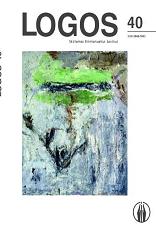DVI DIALOGO ALTERNATYVOS: SOKRATAS IR LEVINAS
Two Alternatives of Dialogue: Socrates and Levinas
Author(s): Vilija ZeliankienėSubject(s): Philosophy
Published by: Visuomeninė organizacija »LOGOS«
Keywords: Dialogue; conversation; interpersonal relations; self-cognition; meeting; wonder; responsibility; dialectic
Summary/Abstract: We compare two alternative approaches to dialogue - one represented by Socrates and the other by Levinas. The first one comes from the Greek tradition of philosophical thought, the second one from the Jewish tradition. The question arises how we can find common ground for dialogue between these two thinkers and, in general, between people of different philosophical schools, different nations, cultures, traditions or epochs? According to Socrates and the general Western tradition of thought, this ground is in rationality, which makes people available for dialogue and for discovering the general truth. The "socratic dialogue" is dialectic reasoning that makes our partner search for truth by wondering and asking questions. The dialogue suggested by Levinas sees this ground in human relationships which make one available for real dialogue in a new, more potent way. Meeting the other face to face implies commitment and responsibility for him/her, and this is real communion instead of just communication. Our analysis of the two alternative approaches to dialogue - those by Socrates and by Levinas - shows that conceptions of dialogue may be very different according to the fact that the aspect of the dialogue - the discoursive one (logos) or the intersubjective one (dia) - is concerned with more attention. Our conclusion is that for fruitful dialogue it is crucial that the partners open themselves up both to the other person and to the truth. It is shared ethical care for the human good and the meaning of life with dialogical concern that may be treated as a subjective reason for philosophical dialogue between Socrates and Levinas. And it is philosophy itself and its living tradition that makes that dialogue real, which is a hermeneutic space of dialogue between thinkers of different nations, cultures, traditions or epochs.
Journal: LOGOS - A Journal of Religion, Philosophy, Comparative Cultural Studies and Art
- Issue Year: 2005
- Issue No: 40
- Page Range: 230-241
- Page Count: 12
- Language: Lithuanian

